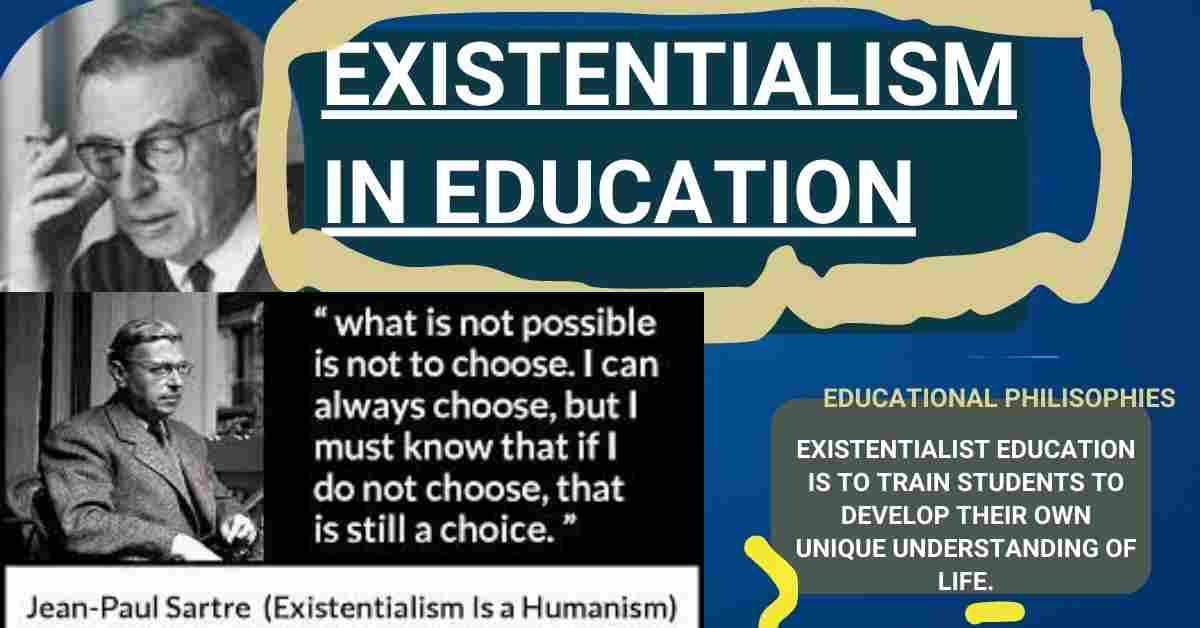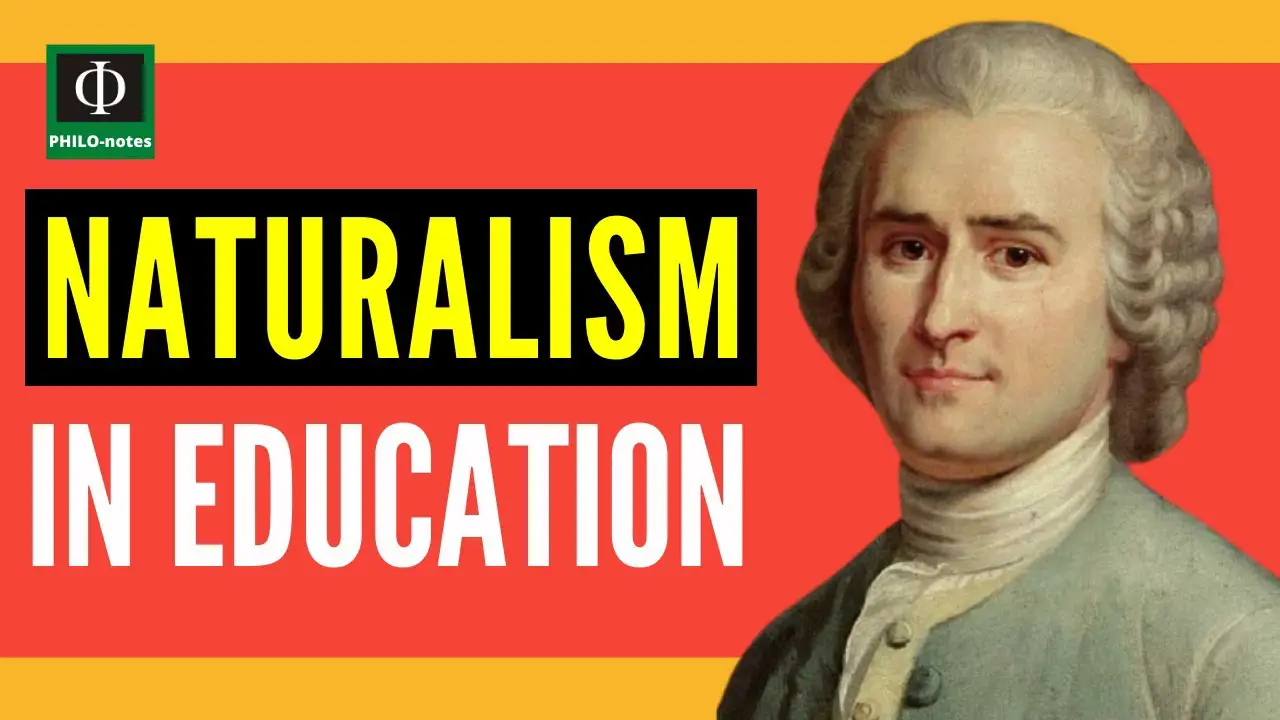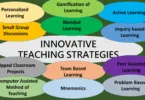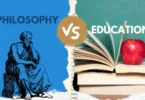Existentialism is a philosophy concerned with finding the self and meaning. Existentialism is a philosophy concerned with finding the self and meaning of life through free will, choice, and personal responsibility.
Existentialism, in its broader sense, is a 20th-century philosophy centered on the analysis of existence and the way humans find themselves existing in the world. The notion is that humans exist first, and then each individual spends a lifetime changing their essence or nature.
The belief is that people are searching to find out who and what they are throughout life as they make choices based on their experiences, beliefs, and outlook. And personal choices become unique without the necessity of an objective form of truth. An existentialist believes that a person should be forced to choose and be responsible without the help of laws, ethnic rules, or traditions
Introduction to Existentialism
Existentialism emerged in the 19th and 20th centuries as a philosophical movement centered around the exploration of individual existence, freedom, and responsibility. Its origins can be traced back to ancient Greek philosophy, particularly to the Sophists, who emphasized subjective experience and the relativity of truth. However, existentialism as a distinct movement gained prominence in the works of 19th-century philosophers like Søren Kierkegaard and Friedrich Nietzsche.
Kierkegaard delved into the subjective experience of the individual, emphasizing the importance of personal choice and the pursuit of authentic existence. Nietzsche challenged traditional moral values and explored the concept of the “will to power” as a driving force in human behavior.
The connection between existentialism and phenomenology is notable through the work of philosophers like Edmund Husserl and Martin Heidegger. Phenomenology, pioneered by Husserl, focuses on the study of consciousness and subjective experience without preconceived notions. Heidegger expanded on this by exploring the existential aspects of being, emphasizing the individual’s engagement with the world and the significance of existence itself.
Existentialism drew from phenomenology’s emphasis on subjective experience and applied it to questions of human existence, freedom, and authenticity. This connection highlights how existentialism incorporates phenomenological methods to explore the subjective aspects of existence and the search for meaning in a seemingly indifferent world.
Existentialism in education is a philosophical outlook that emphasizes individual freedom, choice, and responsibility. It is a humanistic way of thinking that puts personal experiences and meaning ahead of objective facts and established authority.
Existentialist educators think students should be free to choose their interests and values and learn more. They also stress the importance of self-reflection and critical thinking, encouraging students to question the assumptions and beliefs that make up their worldview. Worldview.
Existentialist education, focusing on personal exploration and self-discovery, has affected psychology and counseling, where people are encouraged to look into their deepest thoughts and feelings.
Existentialism in education promotes a learner-centered approach that values individuality, freedom, and self-expression. It goes against traditional education policies that put a lot of emphasis on memorization, standardized tests, and other forms of conformity.
History of Existentialism
Precursors of Existentialism
The precursors of existentialism can be found in various philosophical and literary traditions throughout history. These include
Socrates: Known for the dictum “know thyself,” Socrates encouraged self-reflection and introspection, laying the groundwork for existentialist concerns with individual existence and self-awareness.
Montaigne and Pascal: Michel de Montaigne and Blaise Pascal, through their writings, explored the uncertainties and complexities of human existence, reflecting on the precarious nature of human consciousness and the search for meaning.
St. Augustine: Augustine’s introspective approach to spirituality, particularly his concept of the inner tribunal and the examination of one’s spiritual interior, anticipated themes later embraced by existentialist thinkers.
Marie Maine de Biran: This 19th-century French philosopher emphasized the importance of self-examination and introspection, setting the stage for existentialist inquiries into the individual’s subjective experience.
F.W.J. von Schelling: Schelling’s critique of Hegel and his defense of the irreducibility of existence to reason influenced later existentialist thought, particularly the work of Søren Kierkegaard.
Wilhelm Dilthey: Dilthey’s emphasis on understanding (Verstehen) as a method for gaining knowledge of human experience and history provided a framework for existentialist exploration of subjective reality and individuality.
The Four Themes of Existentialism
The four themes of Existentialism are
- The Individual,
- God
- Being
- Truth
These are the reflections of the philosophical view of Existentialism as a whole. These themes represent the core concepts that existentialists explore and reflect upon in their work.
The Individual
The concept of the Individual is central to Existentialism. Existentialists believe that each person is unique and independent, and they stress the importance of free will and personal responsibility. They reject the notion that individuals are predetermined by society, culture, or biology and instead emphasize the Individual’s freedom to create their own identity and meaning in life.
God is a Recurring theme in Existentialism
God is a recurring theme in Existentialism, though not in the traditional sense. Many existentialists don’t believe in a transcendent God. Instead, they take a more existential and subjective look at how people relate to the divine. For example, Kierkegaard thought that people must choose to believe in God even though the world is uncertain and silly.
Being is Essential to Existentialism
The concept of being is essential to Existentialism. Existentialists focused on the experience of being human and the Individual’s struggle to find meaning in a world that often seems absurd and meaningless. They explore the inherent tension between individuality and social norms, and the effort to reconcile personal identity with the demands of society.
Truth is Central to Existentialism
The theme of truth is central to Existentialism. Existentialists don’t believe in objective truth. Instead, they focus on how people experience reality. They explore the relationship between personal experience and truth and the struggle to find meaning in a world where certainty and objective truth are elusive.
Three Core Principles of Existentialist Philosophy
- Phenomenology
- Freedom
- Authenticity
Existentialism is a way of thinking about life that stresses the importance of each person’s existence, freedom, and uniqueness. By understanding these three core principles, we can better understand ourselves and the world around us. We can live a more meaningful and fulfilling life by taking responsibility for our choices and following our authentic selves.
It emerged in the 19th and 20th centuries and has become one of the most influential and popular schools of thought.
Phenomenology: Seeing the World Through Our Own Eyes
Phenomenology is the study of subjective experiences and perceptions. It is a crucial aspect of existentialism because it recognizes that each experiences the world uniquely. This principle says that there is no reality outside of our own subjective experiences that is objective.
For example, if two people are looking at a beautiful sunset, their evening experiences of seeing the sunset at the beach will be different. One person might be moved to tears, while the other might feel nothing. Phenomenology acknowledges that our past experiences, culture, and personal preferences shape our views.
Freedom: The Responsibility of Our Choices
Freedom is another essential principle of existentialist philosophy. It shows that we are free to make our own decisions and choices, no matter what others think or do. However, with freedom comes responsibility.
Existentialists believe we must take responsibility for our choices and the consequences. We cannot blame anyone else for our decisions or expect someone else to make them for us. Instead, we must be accountable for our actions and their outcomes.
Authenticity: Living Our Lives with Purpose
Authenticity is the final core principle of existentialist philosophy. It focuses on living our lives with purpose and meaning. It emphasizes that we must create our values and live following them. According to this principle, we must not conform to external expectations or societal norms.
Instead, we must find our path and live in a way that aligns with our authentic selves. This can be challenging because it requires continually questioning our beliefs, values, and goals. However, living an authentic life is rewarding because it allows us to live with integrity and fulfillment.
Existentialism Philosophy in Education
This philosophy grew out of the changes of the 20th century and has become popular in schools as a way to help students think critically and be themselves. Education is an approach that emphasizes the importance of individuality and freedom. It rejects the principles of idealism and naturalism and stresses that it exists in time and space is real, while essence is unreal. This philosophy emerged as a response to the upheaval movement in the 20th century and has become influential in education to encourage critical thinking. Existentialism goes against many of the ideas and methods of traditional Western philosophy, and its roots in ancient philosophy are hard to find. The individuality of Man Existentialism goes against many of the ideas and techniques of traditional Western philosophy, and its roots in ancient philosophy are hard to find. This research article will explore the basic tenets of existentialism’s philosophy in education.
The Importance of Individuals and Their Freedom in Existentialism
One of the fundamental principles of existentialism is the importance of the Individual and their freedom. Existentialists believe that individuals have free will and are responsible for their actions. The emphasis on the importance of individuality and independence is evident in education, where students are encouraged to think critically and question authority.
The individuality of Man Is Supreme in Existentialism
Another critical principle of existentialism is that the individuality of man is supreme. Existentialists believe each person is unique and should be encouraged to express their individuality. This principle can be applied to education, where students pursue their interests and talents.
Existentialism is Against Idealism, Naturalism
Existentialism Philosophy in education rejects the principles of idealism and naturalism. Idealism asserts that reality is a product of the mind, while naturalism claims that reality is only what we can observe in the natural world. Existentialists reject both views, arguing that existence in time and space is actual while essence is unreal.
Existentialism Emerged After World War I
After World War I, a time of profound social and political upheaval, existentialism emerged as a philosophical movement. The devastation of the war led many philosophers to question the assumptions of traditional Western philosophy. Existentialism became influential after World War II as people tried to make sense of the destruction and trauma of the war.
Individual Is Real, and Universal Is Unreal
Existentialists believe that the Individual is actual while the universe is unreal. This means that there is no one-size-fits-all solution to life’s problems. Instead, individuals must create their meaning and purpose in life. This principle is essential in education, where students are encouraged to think independently and find meaning and purpose in life.
Exponents of Existentialism
A lot made existentialism of different philosophers, but some are seen as the most important. This article will explore the contributions of Soren Aabye Kierkegaard, Friedrich William Nietzsche, Karl Theodor Jaspers, Martin Heidegger, Gabriel Honoré Marcel, and Jean-Paul Charles Aymard Sartre to existentialism.
Soren Aabye Kierkegaard Father of existentialism
Soren Aabye Kierkegaard was a Danish Christian philosopher who lived from 1813 to 1855. He is often considered the father of existentialism. Kierkegaard thought that how a person feels about the world is more important than what they know about it. He stressed the importance of personal choice and responsibility and encouraged individuals to take responsibility for their own lives. Kierkegaard’s ideas have influenced many existentialist philosophers, including Jean-Paul Sartre.
Friedrich William Nietzsche and Existentialism
Friedrich William Nietzsche was a German philosopher who lived from 1844 to 1900. Nietzsche rejected traditional morality and religion, arguing that they were used to control individuals. He believed that individuals should create values and live according to their principles. Nietzsche’s idea of “willpower” shows how important strength and will are to make life meaningful. His ideas have been influential in both existentialism and nihilism.
Karl Theodor Jaspers
Karl Theodor Jaspers was a German psychologist and philosopher who lived from 1883 to 1969. Jaspers believed that individuals are responsible for creating meaning in life. He talked about how crucial personal experience is and how people must face their limitations and death. Degger
Martin Heidegger was a German philosopher who lived from 1889 to 1976. Heidegger thought that traditional philosophy had lost touch with how people experience the world from their point of view. He talked a lot about the importance of being an individual and having freedom. He said that each person must find their own meaning in life. Heidegger’s concept of “being” emphasizes the importance of being present in the world and living authentically.
Gabriel Honore Marcel
Gabriel Honoré Marcel was a French philosopher who lived from 1889 to 1973. Marcel emphasized the importance of personal relationships and community in creating meaning in life. He stressed the importance of love and personal responsibility and argued that individuals must find their path. Marcel’s ideas have influenced both existentialism and Christian philosophy.
Jean-Paul Charles Aymard Sartre
Jean-Paul Charles Aymard Sartre was a French philosopher who lived from 1905 to 1980. Sartre emphasized the importance of being an individual and having freedom. He said that each person must find meaning in life. He disagreed with the idea that life has an objective meaning or purpose. Instead, he said that each person must make their own values. Sartre’s belief that “existence comes before essence” shows how important personal choice and responsibility are in giving life meaning.
Metaphysics of Existentialism
Metaphysics is a branch of philosophy that deals with the nature of reality. In existentialism, metaphysics is essential in shaping the Individual’s view of their existence and the world.
Metaphysics plays an essential role in shaping the existentialist view of the world. Passionate reason and the discovery of ultimate realities are central to this philosophy. People think the physical universe has no meaning or purpose and that each person must find their own purpose and mean in life. Through emotional reasoning, individuals can better understand themselves and the world around them. The following are some critical components of metaphysics in existentialism.
Reason informed by passion
Existentialism stresses how meaningful a person’s experiences and feelings are to how they see the world. People should not just rely on logical deduction to understand reality; they should also consider their emotions and feelings. This strong reason makes you more aware of ultimate truths and helps you learn more about yourself.
Ultimate realities in Existentialism
In existentialism, individuals believe that ultimate realities are disclosed through passionate reason. These ultimate realities may differ for each individual, but they are seen as fundamental truths guiding one’s understanding of the world. Existentialism is based on freedom, choice, and responsibility, which may be part of these realities.
Existentialists reject Reason and Emotion are Separate Entities
Existentialists reject the idea that reason and emotion are separate entities. Instead, they think that emotion and passion are the driving forces behind reason. This passionate reason is not unreal but is a helpful way of understanding the world. Individuals can better understand the self and the world around them through emotional reason.
Existentialism view about The physical Universe
Existentialism holds that the physical universe—the world apart from man—has neither meaning nor purpose. This means that individuals must create their meaning and purpose in life. This is achieved through passionate reason and by taking responsibility for one’s own life. People see the physical universe more as a background to their lives than as a thing with its meaning or purpose.
Epistemology of Existentialism
Epistemology is the branch of philosophy that deals with the nature of knowledge and how it is acquired. In existentialism, epistemology shapes our view of knowledge and truth.
Epistemology in existentialism emphasizes the importance of subjectivity, self-knowledge, and intuitive understanding. Knowledge and truth are not universal or objective. Instead, they are based on how each person sees and understands the world. Real, lived experiences are seen as the source of truth, not abstract speculation. Real, lived experiences are seen as the source of truth, not abstract speculation. The following are some critical components of epistemology in existentialism:
No knowledge/truth assumes to precede man’s existence.
Existentialism says that no truth or knowledge existed before a person came into being. This means that knowledge and truth are not objective and universal but somewhat subjective and individual. Each Individual’s experience and perception shape their understanding of knowledge and truth.
All knowledge/truth is arrived at by knowing each subjectivity
Existentialism emphasizes the importance of subjectivity in acquiring knowledge and truth. It holds that knowledge and truth are not objective but based on subjective experiences and perceptions. Therefore, individuals must know themselves and understand their experiences to acquire knowledge and truth.
Self-knowledge is the key to all knowledge
In existentialism, self-knowledge is seen as the key to understanding the world and acquiring knowledge. Self-knowledge is achieved through personal experiences, emotions, and perceptions. Through this self-knowledge, individuals can understand the world around them and make sense of their experiences.
Knowledge is Intuitive
Existentialists reject that knowledge is acquired through logical deduction or scientific inquiry. Instead, they believe understanding is intuitive and arises from personal experiences and perceptions. This means that knowledge and truth cannot be objectively verified but are based on subjective experiences and perceptions.
Existentialism Don’t Believe in Abstract Speculation
Existentialism emphasizes the importance of concrete, lived experiences over abstract speculation. This means that individuals should focus on their experiences and perceptions rather than on abstract concepts or theories. In existentialism, truth is found in the concrete experiences of individuals, not in abstract ideas or speculation.
Axiology of Existentialism
Existentialism’s axiology is based on man’s moral responsibility and willingness to accept absolute values. It is an emotional journey that requires awareness that death is inevitable, faithful, honest, and honest.
Existentialism’s axiology is a very emotional journey that asks us to accept our moral responsibilities, take absolute values, be aware of death, and be faithful, sincere, and honest. It is not easy to follow, but it can give life meaning and purpose. Man is ethically responsible for all of his decisions, and this responsibility cannot be escaped. Every decision has consequences, no matter how small or insignificant, and we must be prepared to accept them. The weight of this responsibility can be overwhelming, but it makes life meaningful and gives it purpose.
In existentialism, we must accept absolute values. We don’t get these values from a higher power or authority. Instead, they come from our own experiences and ideas. We must accept these values and make decisions based on them, even when they go against the grain of society.
The awareness of death is also an essential aspect of axiology in existentialism. The knowledge that we will one day cease to exist can be terrifying, but it also gives life meaning. We must embrace this knowledge and live each day as if it were our last.
Fidelity, sincerity, and integrity are also essential values in existentialism. Fidelity means staying true to ourselves and our values, even in adversity. Sincerity means being honest with ourselves and others, even when difficult. Integrity means consistency in our values and actions, even when not popular.
Aims of Education in Existentialism
Education in existentialism can be a powerful tool for personal growth and development. By focusing on the aims of self-realization, personality development, a complete man, enrichment of the human mind, making better choices, freedom, the authentic self, choice-making power, preparing for tragic situations, and developing a sense of responsibility, the educational system can prepare students to face the challenges of life with confidence and resilience.
Education plays a vital role in shaping the future of society. It is about gaining knowledge and developing a sense of self-realization, personality, and responsibility. Existentialism is a philosophy that stresses the importance of individualism and personal freedom. These ideas can be added to the educational system to make it more valuable and meaningful for students.
At its core, existentialism focuses on the human experience and the search for meaning in life. This means that students should be encouraged to learn more about their beliefs, values, and goals. By doing so, they can develop a sense of self-awareness and self-realization that will help them make better choices in life.
Education should not just be about imparting information but also about fostering personal growth and development. This means that the educational system should try to make a place where students feel safe and are encouraged to speak their minds. This way, they can develop a strong sense of identity and fully develop their personalities.
Enriching the human mind is another critical aim of education in existentialism. Students should be exposed to various ideas, perspectives, and experiences to broaden their horizons and expand their understanding of the world. This will help them become more compassionate, empathetic, and open-minded individuals.
One of existentialism’s core values is freedom, which should also be reflected in the educational system. Students should be free to explore their interests and pursue their passions without fear of judgment or ridicule. This way, they can discover their authentic selves and develop a strong sense of purpose.
They believe that making choices is a crucial skill student must develop to succeed. Existentialism says that being able to make choices is an essential part of being accessible and independent. Students should be taught how to make informed decisions and be allowed to exercise their judgment in a safe and supportive environment.
Existentialism also emphasizes the importance of preparing students to face tragic situations in life. This means that the educational system should focus on building students’ resilience, coping skills, and emotional intelligence. By doing so, they can learn how to navigate difficult situations gracefully and with dignity.
Finally, education in existentialism aims to develop a sense of responsibility in students. Students should be taught to take responsibility for their actions and understand the consequences of their choices. This way, they can become responsible citizens who contribute positively to society.
Fundamental Principles of Existentialism in Education
Existentialism in education is a way of teaching that acknowledges the importance of the Individual, the power of the mind, and the value of being yourself. It encourages students to find their values and beliefs, accept ambiguity and complexity, and be open to personal growth. By following these principles, educators can help students become fully realized human beings capable of making choices and shaping their destinies.
In existentialism lies a deep respect for humanity. For those who believe in this philosophy, human beings are not just another creature but the center of existence. In this belief, the fundamental principles of existentialist education have arisen. These principles aim to help students become fully aware of themselves, their unique personalities, and the depth of their inner lives.
The paramountcy of human personality is the cornerstone of this philosophy. Existentialists must recognize the importance of individuality and self-expression in education. Students should be encouraged to develop their values, beliefs, and ideas. In doing so, they will become more aware of their unique perspective on the world around them.
Existentialism in education is a belief in the power of the mind. Existentialism is different from other philosophies because it emphasizes the importance of the inner world. Students are encouraged to explore their thoughts, emotions, and experiences. This allows them to understand themselves and the world around them better.
Existentialism in education is a rejection of absolute values. Existentialism is unlike other philosophies based on fixed, objective rules. Instead, it recognizes that each person has a unique point of view. Therefore, no single belief or idea can be considered universally valid. Instead, students are taught to embrace a sense of ambiguity and recognize the world’s complexity.
Existentialism in education recognizes that human beings are not complete. Unlike other philosophies that seek to impose a fixed set of ideals, existentialists acknowledge that we are all constantly in flux. Our personalities, beliefs, and values continually evolve; our education should reflect this.
Existentialism in education rejects the concept of readymade ideas. In other words, there is no one-size-fits-all approach to education. Instead, each student should be encouraged to explore their unique perspective on the world. This requires a strong respect for each person’s uniqueness, a willingness to accept uncertainty and a dedication to personal growth.
The Curriculum of Existentialism
Existentialism tries to teach people how to understand themselves, think critically, and feel responsible for themselves and society. It emphasizes studying humanities, social sciences, and science, and it is made to be flexible and changeable to meet the needs of each student in a personalized approach to education. Existentialism aims to foster the development of authentic individuals capable of making choices and creating their values.
Education is an essential component of our lives, shaping us into the individuals we are today. The education curriculum is critical in developing our personalities and defining our values. Existentialism is a philosophical approach focusing on the importance of individual experience, freedom, and choice. Existentialism’s curriculum is meant to help people become more aware of themselves, think and analyze critically, and feel responsible for themselves and society.
At the core of existentialist education lies the belief that man is the center of existence. It recognizes the paramount importance of human personality and values. Existentialism tries to create an environment that helps people develop their values and ways of expressing themselves. It promotes the study of the humanities, including art, literature, poetry, drama, and morality. Through these subjects, students can look at things from different points of view and learn more about human nature and society.
In addition to the humanities, social science is a big part of the existentialism curriculum and focuses on the relationship between the Individual and society. It explores how culture influences individuals and how individuals shape society. Through the study of social science, students can gain a deeper understanding of the complex dynamics of society and the Individual’s role in shaping it.
Existentialism also recognizes the importance of science in education. Karl Jaspers, a famous existentialist philosopher, thought science had to come first before philosophy could happen. Science gives people a rational way to understand the world and helps them learn how to think critically. Science teaches students to question what they think they know and gives them a more nuanced view of the world.
Unlike traditional education systems, the curriculum of existentialism is not rigid. It recognizes that everyone is unique and has their own experiences and perspectives. So, the curriculum is made to be flexible and changeable to fit each student’s needs and interests. It allows for a more personalized approach to education that fosters self-discovery and self-expression.
Discipline in Existentialism
In education, discipline is often linked to strict rules and regulations, punishments, and a rigid structure. However, in the philosophy of existentialism, the field takes on a completely different meaning. Specialization in existentialism is not about enforcing rules and regulations but rather cultivating self-discipline through the freedom of the child, a flexible schedule, and a democratic setup. This approach to discipline creates a sense of responsibility, self-worth, and confidence in the child, which are essential for their personal and academic growth.
The education system in existentialism emphasizes the child’s freedom, allowing them to develop their sense of self and make their own choices. This may sound like a recipe for chaos, but it is far from it. Existentialism is based on self-discipline, which can be developed with a flexible schedule and a democratic way of running things.
The child is free to pursue their interests, passions, and talents, understanding that they are responsible for their actions and the consequences that follow. This encourages the child to take ownership of their education, which leads to a sense of pride, confidence, and self-worth.
The role of the teacher in existentialism is that of a facilitator, guiding the child on their journey of self-discovery, rather than an authoritarian figure who enforces rules and regulations. This creates a sense of mutual respect and trust between the child and the teacher, which is crucial for effective learning.
In addition to self-discipline, the curriculum in existentialism includes the study of the humanities, social sciences, and sciences. Studying the humanities, including art, literature, poetry, drama, and moral philosophy, allows the child to explore their emotions and feelings and develop their values and beliefs.
The study of social science, including the relationship between the Individual and Society, helps the child understand their place in the world and how they can contribute to the community in a meaningful way.
The study of science is also an essential part of the curriculum in existentialism, as it helps the child understand the world around them and develop critical thinking skills necessary for making informed decisions.
In conclusion, discipline in existentialism is not about enforcing rules and regulations but rather cultivating self-discipline through the freedom of the child, a flexible schedule, and a democratic setup. This approach to discipline creates a sense of responsibility, self-worth, and confidence in the child, which are essential for their personal and academic growth.
Also Read Pragmatism In Education
Method of Teaching in Existentialism
Existentialism is a powerful teaching method focusing on creativity, originality, and personal growth. Using the Socratic Method, teachers can help students find their identities and ways of looking at the world, emphasizing individuality and creativity. Having students engage in existentialist thinking is one of the most effective ways to foster creativity, originality, and personal growth in students. This way of teaching is based on the idea that every student has unique skills, experiences, and points of view that can be developed and used to make a better life. Below, I will explore the critical elements of teaching existentialist theory and how they can be applied in the classroom.
Socratic Method: Encouraging Critical Thinking
The Socratic Method is a fundamental element of teaching Existentialism. This Method involves asking questions and encouraging students to think critically about their beliefs and values. By using this approach, teachers can help students develop their ideas and understandings of the world around them. Through this process, students can learn to think independently and creatively and create unique perspectives.
Emphasis on Originality and Creativity: Fostering Personal Growth
Existentialism places a strong emphasis on originality and creativity. By encouraging students to think for themselves and develop their ideas, teachers can help them develop a strong sense of personal identity and purpose. This approach can be particularly effective in assisting students to overcome feelings of alienation and isolation and find meaning and purpose in their lives.
Learning by Doing: Role of Teacher
In the existentialist approach to education, the teacher is essential in facilitating student learning. The teacher’s role is to create an educational environment that encourages students to explore their ideas and develop their understanding of the world. This can be achieved through hands-on learning experiences, such as projects and experiments, that allow students to learn by doing.
Facilitating Originality and Creativity: Foreground Center of Attention
In the existentialist approach, the teacher is also responsible for facilitating the development of originality and creativity in students. The teacher should be the center of attention, initiating education through personal influences on students’ lives. This can be achieved by encouraging students to explore their ideas and interests and providing opportunities to develop their skills and talents.
Sympathetic Towards Students: Not Imposing Own Values
In the existentialist approach, teachers should care about their students and not force their values on them. This Method considers that each student is different and that respecting and valuing these differences is essential. Teachers can help students figure out who they are and what they believe by making the classroom a safe and caring learning place.
Supreme Duty to Make Students Understand: Ensuring Student Success
In the existentialist approach, the teacher’s supreme duty is to ensure students understand the presented material. This means using different teaching methods, like visual aids and hands-on activities, to help students understand complex ideas. Teachers can help students succeed academically and personally by taking a proactive approach to teaching.
What is Existentialism in Education?
Existentialism in education is a powerful and life-changing method focusing on personal growth, creativity, and uniqueness. It recognizes that each student has unique experiences, perspectives, and talents and that it is crucial to respect and honor these differences. In this method, teachers take an active role in helping students learn by making the classroom a safe and supportive place where students can try out their ideas and learn more about the world. Teachers can help students find their identities and ways of looking at the world by using the Socratic Method, emphasizing originality and creativity, and having students learn by doing.
The ultimate goal of Existentialism in education is to help students achieve academic and personal success by fostering personal growth and helping them find meaning and purpose in their lives.
What is an example of existentialism in education?
Existentialism in education is shown well by telling students to follow their passions and interests. In this method, teachers create a safe and caring environment where students can try their ideas and learn more about the world. This can be achieved through hands-on learning experiences, such as projects and experiments, that allow students to learn by doing. Teachers can help students develop a strong sense of personal identity and purpose by encouraging them to pursue their passions and interests.
This approach can be particularly effective in helping the students overcome feelings of alienation and isolation to find meaning and purpose in their lives. Ultimately, the goal of Existentialism in education is to help students achieve academic and personal success by fostering personal growth and helping them find their place in the world.
How do Teachers Apply Existentialism?
Existentialism can be used in education by making the classroom a place where creativity, originality, and personal growth are encouraged. Teachers can create a supportive and nurturing learning environment using the Socratic Method, emphasizing learning by doing and encouraging students to pursue their interests and passions.
Teachers can help their students learn by encouraging them to achieve academic and personal success by fostering personal growth and helping them find meaning and purpose in their lives. Teachers can apply existential theory by creating a classroom environment that supports students’ unique needs and encourages them to explore their full potential.
By actively facilitating student learning, teachers can help students develop the skills, knowledge, and understanding they need to succeed both in and out of the classroom.
What is the goal of existentialism?
The ultimate goal of Existentialism is to help individuals find meaning and purpose in their lives. It is a very personal and life-changing philosophy that encourages people to take control of their own lives. In education, existentialist thinking aims to help students develop a strong sense of personal identity and purpose by encouraging them to explore their own ideas and perspectives. By recognizing each student as a unique individual with their own experiences, talents, and interests, teachers can help students achieve academic and personal success by fostering personal growth and helping them find meaning and purpose in their lives.
Existentialism is not just a philosophy but a way of life. It is about embracing the challenges and uncertainties of life with courage and conviction and finding one’s path through the world. It encourages people to be responsible for their choices and live honestly. Existentialist thinking aims not just to succeed in life but to find a sense of fulfillment and purpose in one’s existence. By living an authentic and purposeful life, individuals can positively impact the world and find true happiness and fulfillment.
Who is the father of existentialism?
The father of existentialism is Danish philosopher Soren Kierkegaard, known for emphasizing the Individual’s subjective experience and personal choice.
What are the three beliefs of existentialism?
The three central beliefs of existentialism are the Individual’s subjective experience and freedom, the importance of personal choice and responsibility, and the inherent meaninglessness of the universe.
What are the main ideas of existentialism in education?
Existentialism in education is primarily about helping students grow as people, be creative and original, and find meaning and purpose in their lives. This is done by treating each student individually, emphasizing learning by doing and using the Socratic Method to encourage critical thinking and personal exploration.
What are existentialism’s teaching methods?
Existentialism is a way of teaching that uses the Socratic Method, which focuses on originality creativity, and learning by doing. Teachers also help students grow and develop as people by creating a supportive learning environment and encouraging them to explore their ideas and points of view.
What is an example of existentialism in education?
Existentialism in education looks like letting students explore their interests and passions and letting them speak their minds and ask questions. Teachers can also use the Socratic Method to get students to think critically and help them figure out how the world works for them.
How do teachers apply existentialism?
Existentialism can be used in education by teachers who create a classroom environment that helps students grow as people and encourages them to explore their ideas and points of view. This is done by seeing each student as unique, having compassion for the problems they face, and helping them find meaning and purpose in their lives.
What is the goal of Existentialism?
Existentialism aims to help individuals find meaning and purpose in their lives by taking an active role in shaping their destinies. It encourages individuals to live with authenticity and integrity and positively impact the world around them.
What is Existentialism Today?
Existentialism is still a significant philosophical movement that has affected fields like literature, psychology, and education. Its emphasis on personal growth, individualism, and the search for meaning and purpose resonates with people today.
Education is a critical aspect of human life that serves as a means of acquiring knowledge, skills, and values. Philosophy and the aims of education are critical components that play a crucial role in shaping the educational landscape. Philosophy is the branch of knowledge that studies fundamental questions concerning existence, values, reason, and the universe’s nature. Aims of education refer to the purposes or goals that educators seek to achieve through teaching and learning. In this post, we will explore the relationship between philosophy and the aims of education, the different philosophies of education, and the importance of developing clear aims of education.








[…] emphasizing the enduring ideas and concepts of education. There have been many proponents of existentialism throughout the years, each with their unique contributions to the […]
[…] Pragmatism, and Existentialism are three distinct philosophical approaches that have significantly impacted various fields of […]
[…] Existentialism in Education: […]
[…] Nietzsche, who lived in AD, is known for his critiques of traditional morality and his concept of the “Übermensch,” a higher human being who can transcend traditional morality and create their values. Philosophy has greatly changed because of Nietzsche’s work, especially in ethics and existentialism. […]